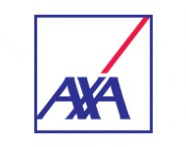The CBD Dilemma

In June 2018, the Food and Drug Administration approved a drug called Epidiolex for the treatment of certain types of severe, intractable seizures. The sole ingredient in Epidiolex is cannabidiol (CBD), one of the main active components of cannabis that belongs to a group of substances called cannabinoids. Hence, CBD became a mainstream treatment for a medical disorder.
With the Hemp Farming Act of December 2018, the US Congress established a new category of cannabis: “hemp”, defined as cannabis and its derivatives that contain up to 0.3% in dry weight of the cannabinoid tetrahydrocannabinol (THC). THC is the principal psychoactive compound in cannabis – the main compound that gives users the feeling of being “high”. While with this piece of legislation hemp became separated from the federally controlled substance, the Act did not amend the legal definition of marijuana, and maintained the FDA power to regulate food, drug and cosmetic products containing cannabis or cannabis-derived compounds, whatever their origin, be it from hemp or from marijuana or synthetic or other.
Especially since the passing of the Hemp Farming Act in the US, CBD derived from industrial hemp has been marketed by many as a catch-all “cure” for certain types of pain, particular unwanted moods, and for a variety of other medical indications that are not approved by the US drug regulator. Touted as a remedy for a growing list of ailments and life-threatening conditions, hemp-derived products, including CBD, have grown in popularity. So too have the concerns around its use.
The new plethora of hemp-derived products designed for personal use that have flooded the market mainly contain CBD, but they can contain dozens up to hundreds of unspecified cannabinoids in unspecified concentrations.
Since the Hemp Farming Act, the FDA has also classified certain hulled hemp seeds, hemp seed oils, and protein powders as safe for food use. They should contain only a few parts per million of cannabinoids. The FDA additionally had to clarify that animal feed or dietary supplements cannot lawfully contain CBD or THC.
However, many topical hemp-derived CBD products fall into a gray area from a legal perspective.
Also, in recent years, the FDA issued warning letters to companies marketing hemp-derived products as providing unproven health benefits, such as protection against COVID-19 and cures for cancer, diabetes, concussions and even opioid dependency.
Unfortunately, attitudes toward the health benefit claims of hemp-derived products often ignore scientific evidence. Presented as a new panacea for nearly every ailment, hemp-derived products are touted as not having any addictive qualities. That has spurred a sales boom. The onslaught of products that has hit the market includes ingestibles and inhalables, but also room sprays, pillow mists, topical creams, oils, roll-ons, patches, toiletries, and products with more than one administration method. These products are available at pharmacies, grocery stories, and various retailers.
Yet at present, there is no specific scientific evidence to suggest the efficacy or safety of these CBD and hemp-derived products that lack FDA approval. There is no scientific guidance regarding dosing for any ailments or conditions beyond those of Epidiolex, with no indication of any safety data forthcoming for consumers.
The side effects associated with Epidiolex use are systematically monitored and studied.
Because hemp-derived products are manufactured by many different companies and can contain variable amounts of CBD and over one hundred other cannabinoids, their effects can vary. Drug-cannabis interactions can cause a number of issues. For example, CBD products might modify the blood concentration of other medicines that are processed by the human liver, and vice versa to a certain extent. As an example of just one CBD-drug interaction, CBD can increase the blood concentration of certain blood thinners, an excess of which can cause internal bleeding.
Products derived from hemp can also cause drowsiness, which could create safety issues for individuals who operate vehicles or machinery. Additionally, the Epidiolex label warns that it can cause liver damage, and that patients should be monitored for suicidal tendencies.
Touted as a remedy for a growing list of ailments and life-threatening conditions, hemp-derived products, including CBD, have grown in popularity. So too have the concerns around its use.
What’s going wrong
From a legal standpoint, CBD is already causing liability issues. Some ongoing lawsuits might claim manufacturing errors, that products contain less CBD than labeled. However, a larger concern than class action alleging fraud on the part of manufacturers would be litigation charging that the side effects of using CBD and hemp-derived products were not conveyed to users. In the latter case, plaintiffs are alleging that the use of CBD products resulted in job loss after the plaintiffs failed company drug tests. Primarily this is due to trace amounts of THC from inconsistent manufacturing processes – with no regulatory oversight labels of THC-free cannot be blindly trusted.
The long-term risks of hemp-derived, FDA-unapproved CBD products include the potential for large liability losses for companies that manufacture or sell them. With little or no mention of side effects and emphasis on efficacy without the backing of specific clinical trials, there will most likely be further litigations involving false advertising. Unsupported health benefits could bring more lawsuits and claims of mislabeling or fraud. And it cannot be excluded that future failure-to-warn liability suits might also allege new physical side effects, cognitive or mental health issues and societal costs thereof.
What employers should know
Until the FDA issues rules and consistently enforces controls around CBD and hemp-derived products, users of the products may not fully understand the risks and ramifications associated with them. The use of such products by employees during the workday should follow the same guidelines companies have regarding over the counter and prescription products. Simply, anything that can impair judgement, cause drowsiness, or otherwise create a chance for an unsafe workplace would not be permitted and employees should divulge such use so that alternative arrangements can be made. Education to your employees on how CBD impacts the body, particularly those employees who operate vehicles, heavy equipment, or machinery as part of their job, may be needed.
Workplace safety is the responsibility of every employee, but everyone may not be aware of the risks of “every day” medications. Clear company policies regarding medicinal product use and an open dialogue with employees about the policy and the risks products can present - especially unproven products like those with CBD and hemp-derived - will promote a safer workplace.
Lastly, employers should clarify for employees the drug testing policy and the potential for these products to provide a positive result.
Additional information
To learn more about CBD and other emerging risks impacting the casualty insurance industry, access our on-demand webinar “Hindsight is 2020: Six emerging liability risks we’re watching.” For additional information about our Casualty Risk Consulting capabilities, visit: https://axaxl.com/insurance/products/casualty-risk-consulting.
Luisa has been a Casualty Risk Consultant at AXA XL for the past 6 years, focusing on Life Science and Healthcare. She delivers risk assessments, technical advice and emerging risk research relating mainly to product and professional liability coverages. Pre-risk consulting Luisa worked for Johnson & Johnson in Quality, for Swiss and UK hospitals as pharmacist, for a biotech start-up in Quality and Occupational Health, as pharmacy shop manager and in synthetic organic chemistry. To reach Luisa CLICK HERE, leave a message and youTalk-insurance will pass you enquiry on.
About AXA XL
AXA XL is the P&C and specialty risk division of AXA which provides property, casualty, professional and speciality products to industrial, commercial and professional firms, insurance companies and other enterprises, here in the UK and throughout the world. With underwriting teams based in the US, UK, EMEA and Asia Pacific regions, we can make decisions close to the markets you serve and work with you to tailor cover to your business needs.
We help businesses adapt and thrive amidst change. Rather than just paying covered claims when things go wrong, we go beyond protection into prevention so your business can go beyond the unexpected.

